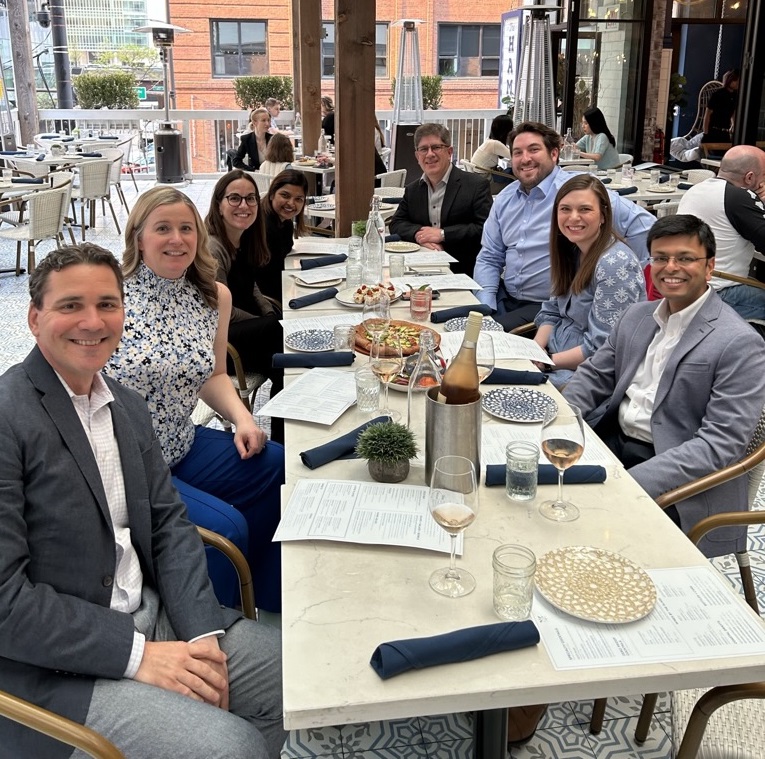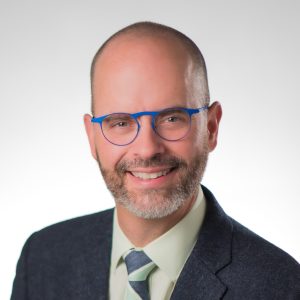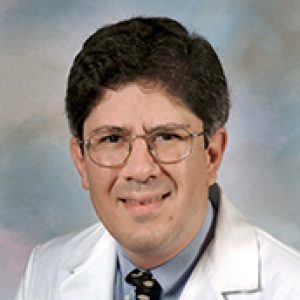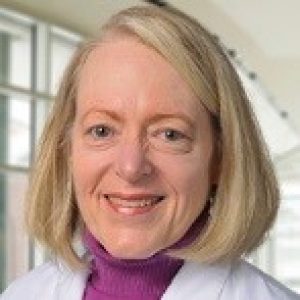Home > AGA Leadership > Initiatives & Programs > Academy of Educators
Academy of Educators
The AGA Academy of Educators is the preeminent home for GI academic clinicians. We recognize excellence in education through the sharing of best practices, offering annual grants and supporting career advancement.
Your home for academic excellence
Founded in 2011, the AGA Academy of Educators supports the personal and professional needs of clinical educators in gastroenterology and hepatology. We are dedicated to strengthening pedagogy, mentorship, assessment, communication and career development.
Our members:
- Create tailored solutions to address their needs with an Academy educational grant.
- Share best practices during the annual plenary session at Digestive Disease Week® (DDW).
- Practice effective teaching methods using on-demand resources at AGA University.
- Cultivate a professional network of mentors and advice for career advancement opportunities.
- Receive recognition for their dedication to excellence in teaching.
Applications for $1,000 microgrants are now open
The AGA Academy of Educators are offering four microgrants in the amount of $1,000. These grants are designed to support career development for faculty and/or trainees with an interest in medical education related to gastroenterology or hepatology. Grants are intended to support projects related to curricular development, teaching or assessment tools, mentorship/sponsorship programs, or education research. Selected projects will be supported through a peer mentorship led by members of the AGA Academy of Educators.
Proposals will be selected based on the following criteria:
- Significance of educational need
- Clearly articulated goals, rationale and plan
- Study team and mentorship
- Impact of grant budget
- Potential for future application or utilization at other institutions
- Potential for sustainability
Grant recipients will be invited to present their work at Digestive Disease Week 2024 in Washington, D.C.
How to apply
To apply, candidates should provide the following:
- Curriculum vitae
- Description of proposed education project (1,200-word limit) formatted into the following sections:
- Educational gap that will be addressed
- Goals and objectives
- Detailed project methodology
- Analysis/evaluation plan including specific measures
- Budget
- Trainee applicants should submit a letter of support from project mentor
Applications are due by Friday Sept. 15, 2023.
Potential applicants may reach out to Grants Program co-chairs Animesh Jain ([email protected]) and Justin Sewell ([email protected]).
Each year, four $1,000 educational grants are awarded to Academy of Educator members to fund the development of gastroenterology- or hepatology-related course or curricular materials, teaching or assessment tools, mentorship programs and research projects in education.
Awardees are asked to reflect on their experience at the AGA Academy of Educators plenary session during DDW. Previously awarded projects include:
- Confronting imposter syndrome: the case for increased emphasis on mentorship for underrepresented minorities interested in gastroenterology
- Development of a faculty video resource for assessment and development of endoscopy-oriented clinical reasoning
- Rethinking “bored” review: direct delivery of clinical cases to improve gastroenterology trainees’ education
- A comprehensive original experiential learning curriculum for Barrett’s Esophagus and determination of learning curves for gastroenterology trainees (core-be)
- Tool to aid decision making for providers and family members of patients requiring enteral feeding at the end of life
The Academy of Educators plenary session at DDW is open to all academic clinicians and medical educators attending the meeting. While the topic changes annually, each session highlights a relevant issue in teaching and techniques for mastering specific methodologies. Previous sessions include:
- Achieving competence through learner engaged teaching methods.
- Valuing educational leadership.
- Strategies for meeting different generational needs.
- Tips for implementing technology and gamification to medical education.
The plenary also provides a unique forum for networking among senior Academy mentors and potential mentees while education grant recipients present key takeaways from their grant-supported work.
| Name | Proposal title | Year |
|---|---|---|
| Noa Cleveland | Introduction to intestinal ultrasound: an advanced IBD fellows hands-on workshop | 2022 |
| Priya K. Simoes | Development of a fee, open-access educational tool to facilitate nutrition learning using tailored case-based scenarios | 2022 |
| Kushboo Gala | Implementing a curriculum for ergonomics in gastroenterology fellowship | 2022 |
| Sara Abdelhalim | Trauma informed care in gastroenterology | 2022 |
| Sarah Ordway | Addressing Healthcare Disparities in Gastroenterology | 2021 |
| Madelyn Cohen | Redesigning Inflammatory Bowel Disease Education: A Comprehensive Curriculum for the General Pediatric Gastroenterology Fellow | 2021 |
| Elizabeth Aby | Collaborative Networking and Mentorship | 2021 |
| Lauren Donnangelo | Development of an Interactive Competency-Based Gastroenterology Fellowship Curriculum on Adverse Events: Disclosure/Apology and Legal Considerations | 2021 |
| Jennifer Behzadi | Development of a telehealth training curriculum to improve provider and patient experiences with telehealth encounters | 2020 |
| Elijah Mun | Development of an online educational tool to more accurately classify polyp size during colonoscopy | 2020 |
| Bhavana Bhagya Rao | Development of a Website to Facilitate Gastroenterology/Hepatology Learning Using Interactive, Case-Based Scenarios: “GiSIM” | 2020 |
| Yakira David | Development of a Faculty Video Resource for Assessment and Development of Endoscopy Oriented Clinical Reasoning | 2019 |
| Temini Ajayi | Confronting Imposter Syndrome: the case for increased emphasis on mentorship for underrepresented minorities interested in Gastroenterology | 2019 |
| Jennifer Kolb | A Comprehensive ORiginal Experiential learning curriculum for Barrett’s Esophagus and determination of learning curves for gastroenterology trainees (CORE-BE) | 2019 |
| Animesh Jain | Rethinking “Bored” Review: direct delivery of clinical cases to improve gastroenterology trainees’ education | 2019 |
| Craig Reed | A Curriculum to Determine the Threshold for Competency in Capsule Endoscopy Interpretation | 2018 |
| Carolyn Newberry | The Thick and the Thin of It: Increasing Gastroenterology Fellows’ Understanding of Obesity and Nutrition Management | 2018 |
| Larissa Muething | Developing a case-based interactive radiology curriculum for gastroenterology trainees | 2018 |
| Jill Deutsch | Neurogastroenterology Motility Curriculum for GI Fellows in Training | 2018 |
| Kelly Cushing | Assessment of Advanced Inflammatory Bowel Disease (IBD) Fellowship Clinical and Academic Outcomes | 2017 |
| Kamron Pourmand | Creation of Faculty Development Tools to Improve Endoscopic Teaching | 2017 |
| Andrea Betesh | Tool to aid decision making for providers and family members of patients requiring enteral feeding at the end of life | 2017 |
| Megan Adams | Building Essential Skills to Facilitate Successful Transition from Gastroenterology Training to Independent Practice: Developing a Curriculum to Enhance Gastroenterology Trainees’ Literacy Regarding Personal Asset Management | 2017 |
| Richa Shukla | Improvement in User Confidence and Competency in Upper Endoscopy with the use of a Smartphone-Based Endoscopy Training Application | 2016 |
| Simon C. Mathews | Improving Antithrombotic Education for Endoscopic Procedures Among Gastroenterology Trainees through a Point-of-Care Clinical Decision Support Mobile Application: A Multi-Center Approach | 2016 |
| Jennifer A. Inra | “Grab and Go” Teaching Modules for Gastroenterology Fellows’ Ambulatory Clinic | 2016 |
| Osman Ahmed | A Clinical Decision Support Tool to Aid in the Management of Hospitalized Cirrhotic Patients | 2016 |
| Christen Dilly | Validity Evidence for a Summative Endoscopic Skills Assessment Tool | 2015 |
| Erin Forster Perlini | Improving IBD Patient Knowledge, Medication Adherence and Satisfaction and Patient-Provider Relationships with an Interactive Software Decision Aid | 2015 |
| David Wan | Improving Fellows’ Small Bowel Capsule Endoscopy Competency: A Computer-Aided and Video-Based Curriculum | 2015 |
| Swathi Eluri | Improving Nutrition Education Among Gastroenterology Trainees through Case-Based Online Modules and Behavioral Nudging via Text Messages | 2015 |
Each year, four $1,000 educational grants are awarded to Academy of Educator members to fund the development of gastroenterology- or hepatology-related course or curricular materials, teaching or assessment tools, mentorship programs and research projects in education.
Awardees are asked to reflect on their experience at the AGA Academy of Educators plenary session during DDW. Previously awarded projects include:
- Confronting imposter syndrome: the case for increased emphasis on mentorship for underrepresented minorities interested in gastroenterology
- Development of a faculty video resource for assessment and development of endoscopy-oriented clinical reasoning
- Rethinking “bored” review: direct delivery of clinical cases to improve gastroenterology trainees’ education
- A comprehensive original experiential learning curriculum for Barrett’s Esophagus and determination of learning curves for gastroenterology trainees (core-be)
- Tool to aid decision making for providers and family members of patients requiring enteral feeding at the end of life
The Academy of Educators plenary session at DDW is open to all academic clinicians and medical educators attending the meeting. While the topic changes annually, each session highlights a relevant issue in teaching and techniques for mastering specific methodologies. Previous sessions include:
- Achieving competence through learner engaged teaching methods.
- Valuing educational leadership.
- Strategies for meeting different generational needs.
- Tips for implementing technology and gamification to medical education.
The plenary also provides a unique forum for networking among senior Academy mentors and potential mentees while education grant recipients present key takeaways from their grant-supported work.

Several members of the Academy of Educators advisory board gather at DDW 2023 in Chicago, Illinois.
Advisory Board
PROGRAM CHAIRS

Christen K. Dilly, MD, MEHP
Director; Associate Professor of Medicine, Assistant Dean for GME, Indiana University School of Medicine

Justin L. Sewell, MD, PhD, MPH
Co-Director; Professor of Clinical Medicine, University of California San Francisco
Medical Director for Gastroenterology, San Francisco General Hospital

Arthur J. DeCross, MD, AGAF
E&T Liaison; Professor of Medicine, Division of Gastroenterology and Hepatology, University of Rochester Medical Center

Sheryl A. Pfeil, MD, AGAF
Education Councillor; Professor of Clinical Medicine Medical Director
Clinical Skills Education and Assessment Center
The Ohio State University College of Medicine and Wexner Medical Center
BOARD MEMBERS
- Jason Michael Brown, MD, Associate Professor, LCME Faculty Accreditation Lead, Emory University School of Medicine
- Tanya Bruckel, MD, Assistant Professor of Medicine Medical Director of Gastroenterology, Hepatology, and Endoscopy at UR Sawgrass Quality Director, Division of Gastroenterology University of Rochester Medical Center
- Amar R. Deshpande, MD, AGAF, Professor of Medicine, Gastroenterology, Associate Dean for Medical Education, Vice Chair for Education, Department of Medicine, Faculty Advisor, Department of Community Service (DOCS), University of Miami Miller School of Medicine
- Animesh Jain, MD, AGAF, Associate Professor of Medicine Clinical Phase Academic Coach, UNC School of Medicine Advanced IBD Fellowship Program Director Multidisciplinary IBD Center Division of Gastroenterology & Hepatology University of North Carolina – Chapel Hill
- Navin Kumar, MD, Staff Physician, Division of Gastroenterology, Brigham and Women’s Hospital Assistant Professor of Medicine, Harvard Medical School
- Adam Mikolajczyk, MD, FAST, FACP, Program Director, Internal Medicine Residency University of Illinois Chicago
- Feenalie Patel, MD, PGY 7, Indiana University
- Kamron Pourmand, MD, Assistant Professor of Medicine, Transplant Hepatology Fellowship Program Director, Icahn School of Medicine at Mount Sinai
- Atoosa Rabiee, MD, Assistant Professor of Medicine, Transplant Hepatology/Gastroenterology, Washington DC Veteran Affairs Medical Center
- Richa Shukla, MD, Assistant Professor Medicine-Gastroenterology, Baylor College of Medicine
- Molly Stone, MD, Fellow, Gastroenterology University of Michigan
View the full list of charter members.
For questions about Academy programs or membership, please email [email protected].











